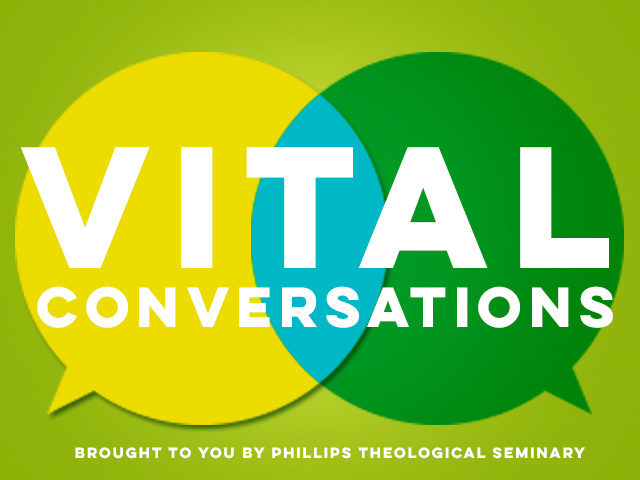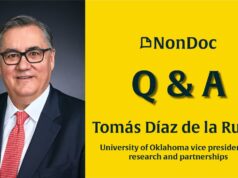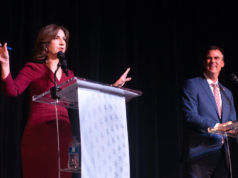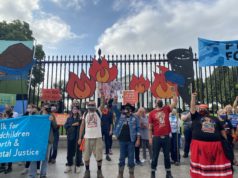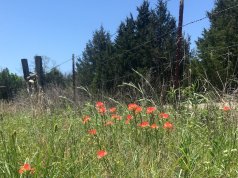(Editor’s Note: Vital Conversations is a running series of commentaries from various faith leaders. The series is sponsored by Phillips Theological Seminary, though contributions come from theologians who are unassociated with the seminary.)
In the opening words of Pope Francis’ encyclical addressing climate change and the environment, he invited us to think of planet Earth as a mother who opens her arms and embraces us.
Too often, we have thought about the Earth as something simply to be used and exploited. While I’m sure some mothers feel that way, the end result for humanity is that we are in big trouble with our mother.
At the end of November and the beginning of December, leaders from around the world will gather in Paris to consider strategies that can combat climate change and the dramatic rise in temperatures currently taking place. Leaders of nearly every country have come around to recognize climate change as a serious problem that deserves a serious response. Time is running short, and most scientists agree we must respond now to prevent a major planetary catastrophe.
While there are countless major changes in public policy needed to deal effectively with climate change, many faith leaders argue the effort must begin with a change in how we see the Earth. Is the Earth just inert matter to be used in any way we want? Or is it sacred and deserving of our utmost care and concern?
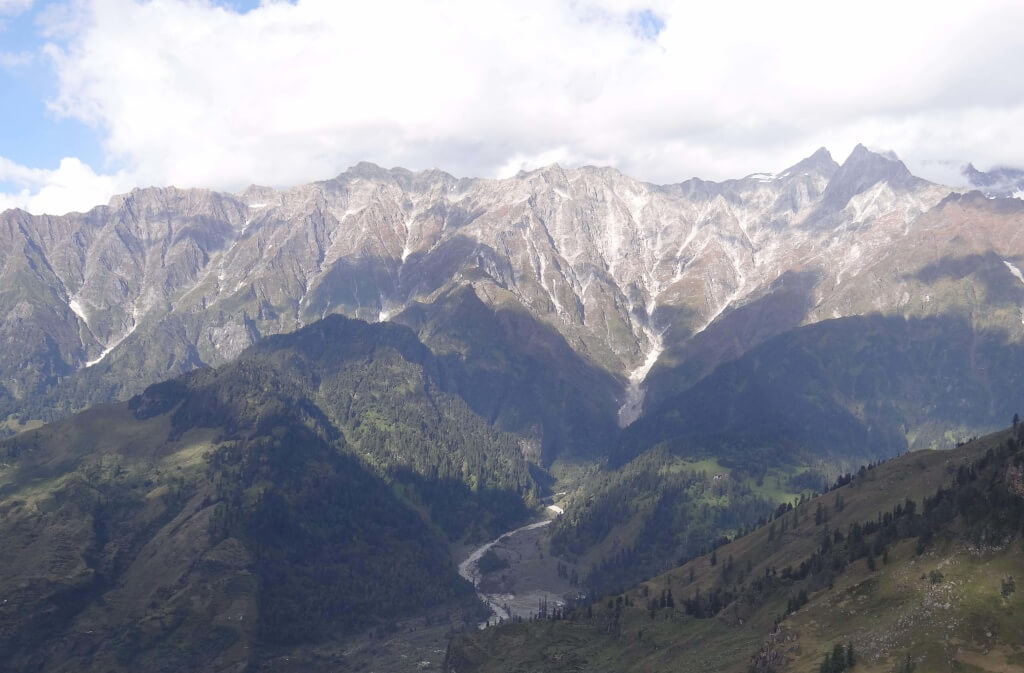
The vast majority of religious leaders around the world are recognizing and speaking out about the threat of climate change and the urgent need for coordinated action. While religious leaders are paying close attention to what the scientists are telling us, the call for action grows out of a deeper truth about the fundamental connectedness that exists between humans, other living creatures and Earth itself.
Historically, native and indigenous tribes around the world operated out of a creation story in which human beings were fundamentally connected to the mother Earth. They believed that Earth was infused with the presence of a sacred spirit. This core belief largely gave shape to their ways of using natural resources and also to their economic systems. They understood that the air, the water and the trees were relatives because the breath of the Spirit was in them. In the native view, we are surrounded by the sacred.
There is a “green” tradition that is a part of Christianity, but in the past several centuries, Western religion has too often viewed nature and the Earth quite differently from native people. Since the Enlightenment, much of Western Christianity has focused upon matters of the spirit as separate and apart from matters of physical nature. The uneasy truce between science and religion centered upon science being concerned with the natural world and religion focusing upon spiritual matters.
This split had at least two tragic consequences: First, religion was now reluctant to draw upon the natural world as a means of experiencing the divine; second, science was now able to relate to the Earth as mere “stuff” lacking any sense of the sacred.
Respect for the Earth grows out of seeing the planet as an aspect of the divine and seeing our responsibility to care for it as sacred as well. A large part of our current predicament with climate change is that modern society generally sees nature as inert, lifeless stuff to be manipulated and messed with as long as it serves our purposes.
Similarly, the divine is too often seen as something out there — or up there — but not something to be found in the real, physical world. Religion has often challenged people to transcend the natural world in order to connect with the divine.
Being able to detach from the physical world in that manner allowed modern people in the West to probe, explore and analyze the Earth’s stuff in a new and unprecedented manner. This has led us to the present age’s incredible explosion of science and technology.
This view of the Earth as usable material and not sacred resources has now turned against us in an incredibly destructive manner. We are up against centuries of theological interpretation that regarded the natural world with outright hostility — as a misery to be transcended and an “allurement” to be resisted. As a result, we may be on the verge of stretching the limits of the Earth’s capacity to tolerate human activity.
Hope seen in fundamental change
In more recent years, science and religion have begun to recognize a fundamentally different way of seeing the Earth. Rather than seeing the universe in all of its separateness and individual parts, science has begun to see reality as fundamentally connected in much the same way native people have.
As people living on one fragile planet, it is no longer appropriate to say, “Your end of the ship is sinking.” The survival of the planet depends upon a new way of thinking based upon this sense of connectedness that most religious traditions recognize. This awareness of our fundamental unity must form the basis for a new way of relating to the Earth.
Recent discoveries offer a way of overcoming this split thinking that has been present for several centuries. Physics demonstrates that nothing exists in isolation. All of matter — from subatomic particles to the galaxies in space — is part of an intricate web of relationships in a unified whole. Biology reveals that, in a totally interrelated system, the survival-of-the-fittest principle has new meaning.
The “fittest” must now be seen as the species that best contributes to the well-being of the whole system. Ecology provides the understanding that all parts of a living system are interconnected and that greater stability results from increased diversity. These and other “discoveries” reveal a new paradigm and point us in the direction of a new relationship with the Earth and one another.
As Pope Francis explained, “We lack an awareness of our common origin and our mutual belonging. We can no longer regard nature as something separate from ourselves or as a mere setting in which we live. We are part of nature, included in it and thus in constant interaction with it.
Previous installments of Vital Conversations
Ten Commandments: Reactions spur moral discussion
Vital Conversations: Christianity needs a Jon Stewart
Imam: A Muslim is your brother from another mother
Pope’s visit should ‘enrich our impoverished discourse’








